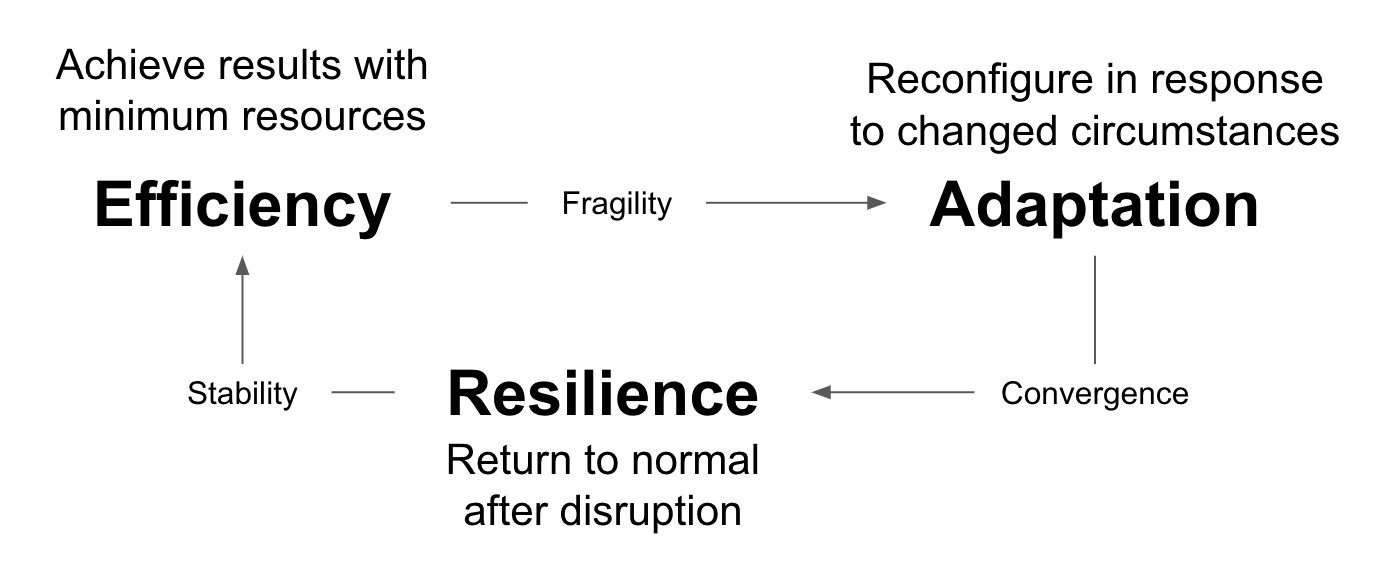Critical uncertainties about the future of work
Steven Forth is co-founder and managing partner at Ibbaka. See his skill profile here.
The Covid 19 pandemic has led many of us to reconsider our basic assumptions. The future is uncertain. We need to understand how we prepare ourselves, our teams and our organizations for this uncertain future.
Uncertainty has led to an upsurge of interest in scenario planning. Tim O’Reilly, publisher of O’Reilly, recently published a thought piece “Welcome to the 21st Century How To Plan For The Post-Covid Future” in which he advocates for scenario planning as the best way to develop alternative strategies for an uncertain future.
At Ibbaka, we have been doing a lot of work with scenarios over the past months. We have even developed a course to help people involved in pricing and marketing develop their own scenarios. We are now extending this work to talent management.
One use of the Ibbaka Talent platform is to develop alternate scenarios for skill development and the design of jobs. In order to do this effectively one must have a point of view on the jobs, roles and skills of the future. One can try to do this by projecting from current trends, but as we have seen with Covid 19 it can be difficult to predict the future and it is better to prepare for several alternatives. Scenario planning is how to do this.
While scenario planning makes use of forecasting, the actual alternative scenarios are built by combining two or more critical uncertainties.
(It is good to start with just two so as not to be overwhelmed by complexity.) Identifying the critical uncertainties and then choosing how to combine them is at the heart of scenario planning.
The World Economic Forum (WEF) has developed a set of scenarios in their report Eight Futures of Work: Scenarios and their Implications. The critical uncertainties used to generate these scenarios are
Technological Change: Steady or Accelerated
Learning Evolution: Slow or Fast
Talent Mobility: Low or High
We tested these with a number of our advisors and clients and came up with a slightly different set to see the process. We also allow you to rate the probability of each uncertainty along a continuum.
Talent Mobility: Less Mobility - About the Same - More Mobility
Wage Disparity: More - About the Same - Less
Workforce Diversity: Less - About the Same - More
Impact of Robots and AI: Replace Humans - Little Impact - Complement Humans
Pace of Learning: Slower - About the Same - Accelerated
Autonomy (control over one’s work): Less - About the Same - More
Use of Freelancers: Decrease - About the Same - Increase
Level of Employment: Less - About the Same - More
In the survey, you can also propose your own, and we have already received some interesting suggestions. These fall into two big ideas.
The overall economy - the future of work will depend on the overall economy and one can’t really plan for the future of work without taking larger economic trends into account.
Social conditions - work is embedded in the society we live in and the nature of that society will impact how we work together.
These are both compelling points and we are thinking about how we could apply them without making the scenario process too large and unfocused.
This is Ibbaka, so we are critically concerned with skills. We are researching the skills that will be needed in different industries under a variety of future scenarios. We are also asking what types of skills are most important at different phases in an industry.
The types of skills that are most valued change as industries (or whole economies, or even societies) move around the cycle of Efficiency, Adaptation and Resilience. Over the past few months, resiliency has been critical. One needs time to adapt and individuals or organizations with low resilience (often because of their success in specialization) have suffered. As the post Covid economy comes into focus over the next few years adaptation will be important for many.
What skills will you and your organization need in order to adapt?
Eventually, things will settle down, and the focus will return to efficiency, that is, until the something causes the cycle to begin again.
Please add your voice to this survey. You will be able to see the results right away, and if you provide your email we will send periodic reports and updates.



